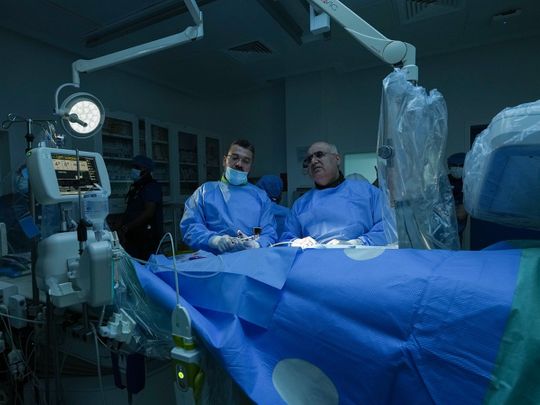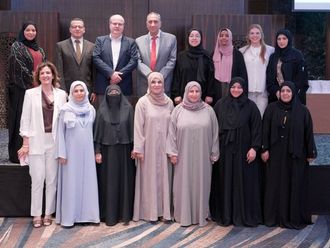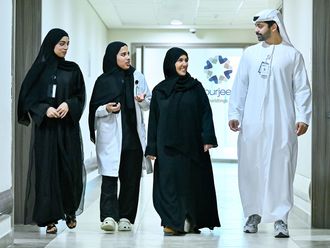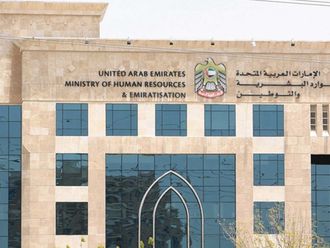
Abu Dhabi: A team of doctors at the Al Qassimi Hospital in Sharjah has successfully performed its first cardiac catheterisation using the GENTUITY device.
The device is known to be one of the most advanced catheterisation devices in the current generation, said the hospital, which is an affiliate of Emirates Health Services (EHS).
GENTUITY can scan more than 100 millimetres of coronary arteries in less than a second, which leads to 33 per cent greater coverage when compared with devices currently in use. Meanwhile, the thickness of the catheter using the new device is equivalent to 0.60 millimetres (Fr1.8).
The new device, which relies on the scanning mechanism, evaluates the coronary arteries in terms of cholesterol, calcium, and tissue, and reads the extent of the susceptibility of these tissues to heart attacks in the future.
Chest pain
The equipment was used to perform the catheterisation of a 50-year-old woman. The patient was admitted to the hospital suffering from angina pectoris, and after running the necessary tests, it was found that she had atherosclerosis in the arteries. This required immediate intervention using catheters and the GENTUITY device, which covers the coronary arteries with diameters ranging between 1.3millimetres and 6 millimetre to remove coronary atherosclerosis.
Dr Arif Al Nooryani, CEO of Al Qassimi Hospital, said the device used is highly accurate, capable of scanning minuscule coronary capillaries and detecting atherosclerosis in them. He added that he was proud of this achievement, which adds to the hospital’s track record, and expressed his gratitude to EHS for its constant support.
Dr Al Nooryani added that the importance of the device lies in its ability to detect sclerosis early in the most delicate coronary capillaries, as well as in its speed compared to the previous generation currently in use, which speeds up surgical interventions, facilitates the performance of delicate catheterisations and removing sclerosis in patients.












